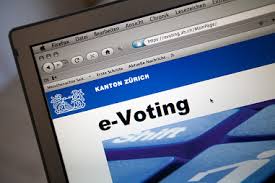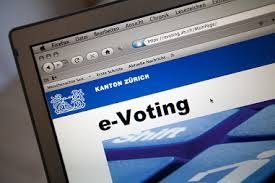CASE BACKGROUND: It was learnt that some individuals from the Department of Computer Science recently approached the Students’ Union Electoral Commission proposing to assist with the conduct of the forthcoming election electronically. Fortunately or unfortunately however, the Commission unanimously ruled against it. Is this decision the rash impulse of a few or does it reflect the ineluctable reality before us? It is to this that Courtroom directs its searchlight this week.
The great aim of education is not knowledge but action ~ Herbert Spencer
I know of an old man, eldest son in his family, heir to the legendary white wisdom – wisdom which manifests through plenty grey matter and countless wobbly bones. I know of an old man who tasted from the boring ways of the past and the breath-taking ways of the new but who, while donning himself in fashionable clothes, has still not recovered from the handcuffs of history and the shameful seke-sekes of antiquity. I know of an old man whose view of the future is astigmatic and whose legs are still drenched in the quicksand of the Stone Age. I know of an old man who knows too much but applies just little. I know of the University of Ibadan.
Milords, asking if the Students’ Union is ready to adopt electronic voting is like asking if humans are ready to start wearing clothes or if, after the 7th week, a stalite is ready for accommodation. These are all questions meant for yesterday. Questions which should have been answered positively and forgotten in the trashcans of memory. Questions that ought to have decomposed beneath the sands of time. Today, rather than doubting if we are ready for the things of yesterday, we should be seeking to know how to build on the things of today in a bid to stride majestically into the future.
No doubt, the premier Students’ Union in Nigeria is ready for electronic-voting. It is in fact long overdue. The reasons for this are overwhelming. Firstly, it should be noted that e-voting, just like every other progeny of technology, makes sure that time and cost are put to judicious use. We do not have to wait for several hours before results of an election are read out. Candidates, with the e-voting system, will be saved several hours of worry and high blood pressure. Some minutes after all votes are cast, everyone hears the result and everyone moves on with their lives. It is high time we stopped reducing the sacred issue of election to melodramatised histrionics. Suspense is not needed and should be dispensed with.
Also, e-voting if triggered into action will obliterate cases of void voting. The paper-based system has not only been disenfranchising unsuspecting victims, it has also granted electoral officers the liberty to abuse the window left open by the concept of ‘void votes’. I am pretty sure if I were put in charge of a polling centre, I would be inclined to forgive apparently void votes and condemn a wavering vote to scarcity from the book of life depending on whether it is in my anointed’s camp. This may not necessarily be intentional. The sub-conscious mind, I tell you milords, works in miraculous ways.
Joseph Stalin once remarked that, ‘the people who cast the votes don’t decide an election; the people who count the votes do.’ Why should we then place the destiny of the union into the fragile hands and unreliable memories of a few? Why should we depend on the Deputy Registrar in king-making when we can have computers act as efficient, impartial and incorruptible arbiters? It should further be noted that this idea is not even entirely strange in the University of Ibadan. Entities such as the Department of Computer Science, Faculty of the Social Sciences, Faculty of Technology, Ransome-Kuti hall, Sultan Bello hall and Queen Elizabeth II hall have all used it successfully in the recent past. So why can’t the Students’ Union? Or is sauce for the goose now pus for the gander?
It may interest you milords to learn that in 2013, the election that ushered in Oluwaseyi Oyaniyi as the Mayor of Sultan Bello hall was not only done electronically, it also wound up favouring the party which thitherto took objection to the idea. They had promised to unzip the ozone layer if the other aspirant won the election. Amusingly, that did not happen and a dubious process instantly became squeaky clean.
Moreover, introducing e- or i-voting will also jack UI further from the cesspool of theoretical complacency into the seventh heaven of practicality. Students of Computer Science will be able to boast of a demonstrable, sustainable project. They will be enabled to think outside the ‘ballot’ box to come up with 21st century-compliant solutions to hydra-headed problems. They will be able to beat their chests like geeky King-kongs and proclaim to the world that their four years in the ivory tower isn’t a total waste.
Finally, we should also take into consideration the fact that the United States has been operating this system since 1964. One wonders then why it still scares our leaders like an alien ogre. Heading back home – even University of Ilorin, a neonate when UI already gathered 5 years’ experience in the labour market, has already gotten used to using e-voting. And it is a notorious fact that their ICT is truly BETTER than ours BY FAR in many other respects too. Milords even Adeyemi College of Education, a school I heard of only of recent, has used this technology. And in the words of Seneca; ‘to strive with an equal is dangerous, with a superior mad, with an inferior degrading.’ At the moment, UI is not striving with an inferior. She is not even striving to strive with an inferior. So I am forced to submit, milords, that even if we are not ready, we must find no mouth to announce it. We should in fact force readiness upon ourselves.


“If you want to lean on a tree, first make sure it can hold you” – Ambede adage
The period leading to this year’s Students’ Union elections is already full of negatives. This era has been painted with the brush of boredom and placed gently within the frame of ennui. The sonic beauty of electrifying jingles coupled with the interestingly captivating campaign programs, which coloured that of yesteryears, has been lost in the depressing abyss of oblivion. Information dissemination is more sluggish than a slug, morning cries are as impotent as the “press” in Students’ Union Press Club, taglines are as bland as a tone-deaf man’s singing and poster designs are indeed the miracle cure for high-level insomnia.
As if this was not enough, some people have started to plant and water the seedy idea of having electronic voting for this year’s conduct. My fear is that it will germinate and become a huge tree which will shade us from the liberating sun of truth and justice on this campus. For that reason, my esteemed Lords, I am here to uproot this ridiculous idea from the soil of our minds, lest it becomes our undoing.
Let me begin the lettering of my argument by borrowing from the ancient, time-honed wisdom of the pre-colonial sages of the Ashanti world: no one tests the depth of a river with both feet. It is obvious that this is a system that has not been tested well enough. It is still prone to errors. Why choose such a risky method in dealing with a very delicate issue such as this? It would be very unwise to attempt to rely on technology which you will definitely agree with me is unreliable unless you have never set your alarm at 5am and woken up at 7:30 am before. Many things could go wrong and it is expected that even if we are to ever use this system of voting, it should have been repeatedly examined and practised. With the elections a fortnight away, I do not see how this is even in the realm of possibility.
However enticing and new-age it sounds, let us not allow our puerile excitement become shards of glass that pierce our eyes, blinding us to the dangerous likelihood of rigging. In a fast-moving world of ICT, where tech geniuses arise at breakneck speed, it is increasingly more probable for electronic rigging to occur. Right before our koro-koro eyes, a savvy whiz can manipulate the figures and we would never suspect a thing! At least, if we count manually, we can all suspect when something is wrong, but how many Uites have hacker-level intelligence when it comes to such issues? This is not to belittle the sagacious soundness of the impeccably erudite students of University of Ibadan. But my resolve to stress the fact that it is beyond the majority of Uites’ comprehension is merely the lovechild of my romance with realistic thinking. It is no news that digital voting is much simpler to doctor than manual ones.
Furthermore, it is a truism as noticeable as a sane man walking unclad in the market square that it is not a popular mode of voting on campus. Of course, some departments have tried it but what is the percentage of those to the entire populace of the student base? It is not yet widely practiced and trusted totally. We should not be too eager to jump into something that will only cause us problems. Let us not jump into this sports car yet and attempt to race to the Promised Land. Take it for a test drive first and see what happens.
As the maxim goes, if it ain’t broke, don’t fix it. The traditional system is still workable. It is not necessary that we should now forego a system that has served us so well for so long. Let us not become the insatiable Elesin Oba whose infatuation with fresh blood blurs his thoughts of the aged ancient damsel that clothes his wretchedness. Has it been controversial? Has the old system been found imperfect? Has it been around for ages? Yes, yes and yes! But despite its controversy, it is not impracticable; despite its imperfect nature, it is not to be discarded and despite being around for so long, it is yet wearing the rags of anachronism.
My Yoruba fathers believed that “we do not look at another person’s clock in order to work.” Therefore, I beg of you to ignore such counsel that argues that it is done in other places and thus, we should try it too. The baseline is: we are just not ready! Let us take our time. God bless you.
CONCLUSION: This column is about you, it presents the two sides of a case courtesy of two writers from different schools of thought. “Audi alteram partem” means hear the other side before passing your judgment. Take the gavel, make your decision and slam because you are the judge in this courtroom.
IS THE UI STUDENTS’ UNION READY FOR ELECTRONIC VOTING?
Send reservations, comments and suggestions to 090-929-18298, 081-489-04513 or dcourtroom12@gmail.com





